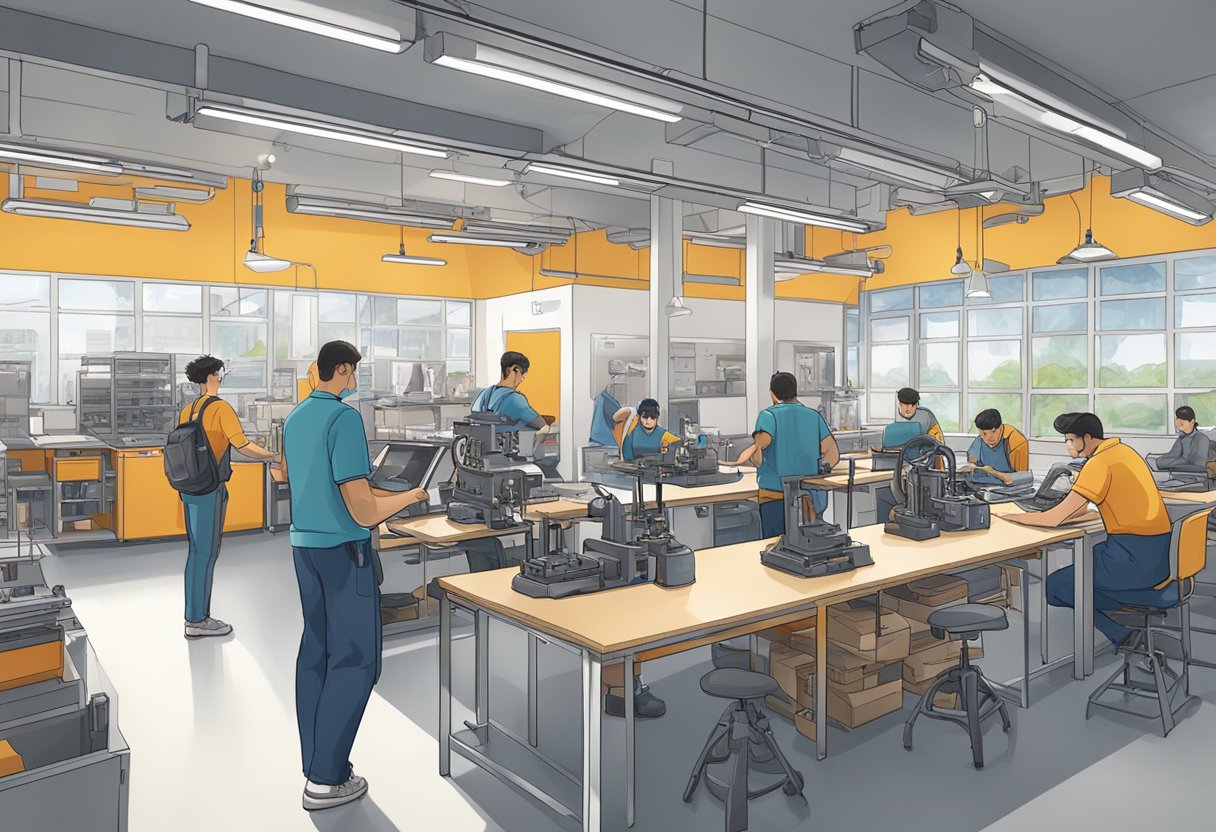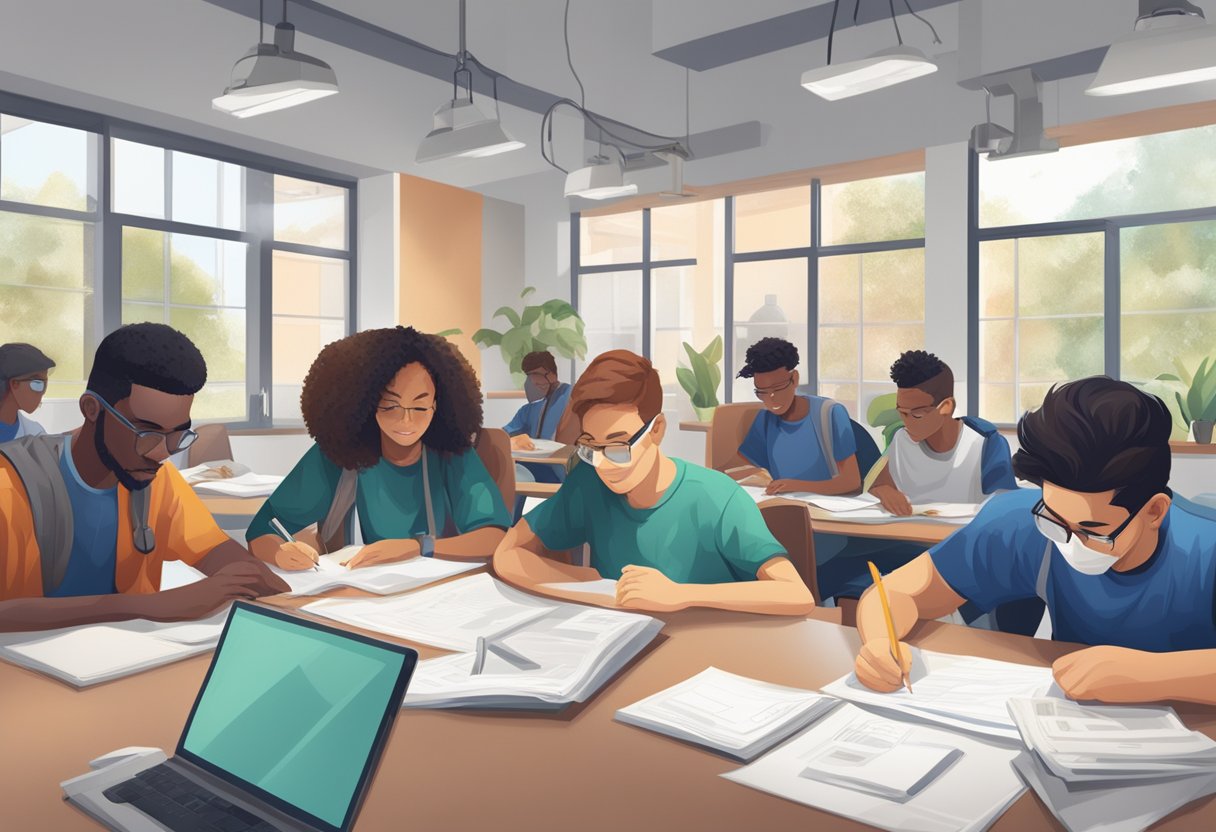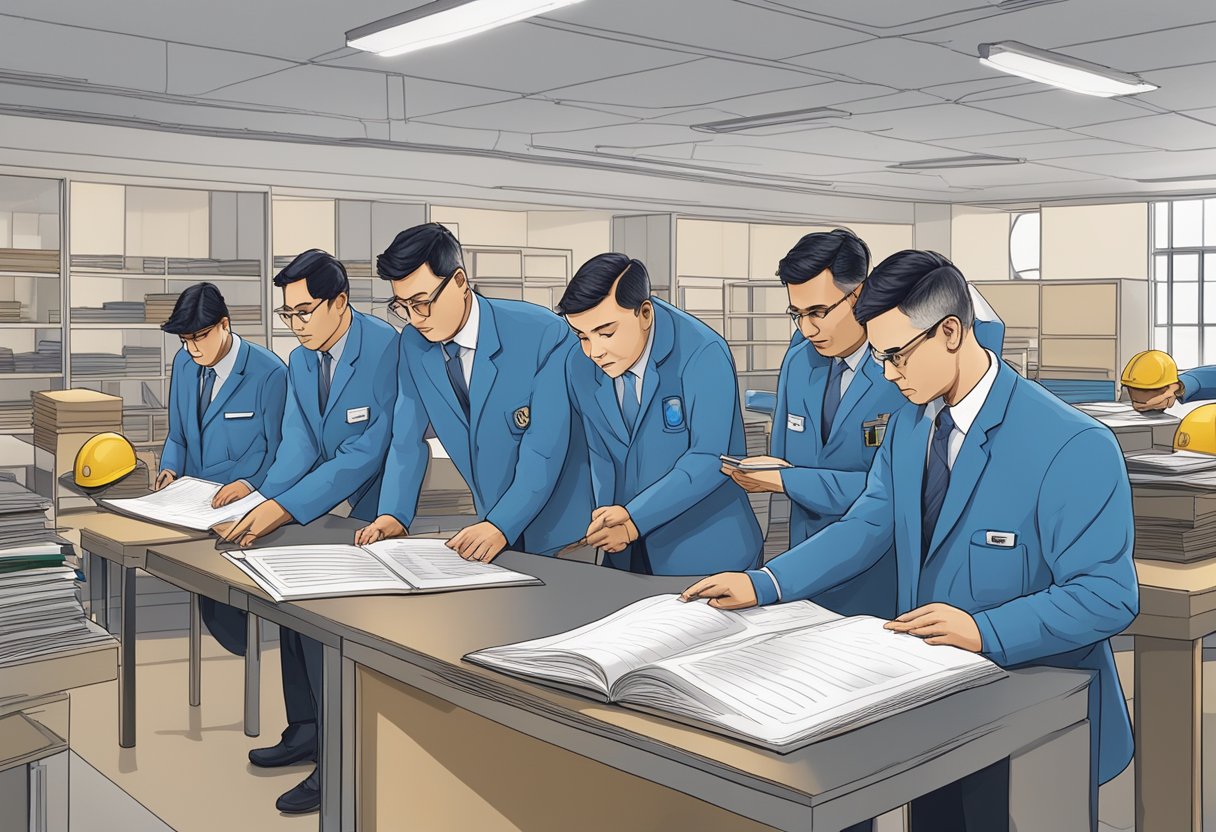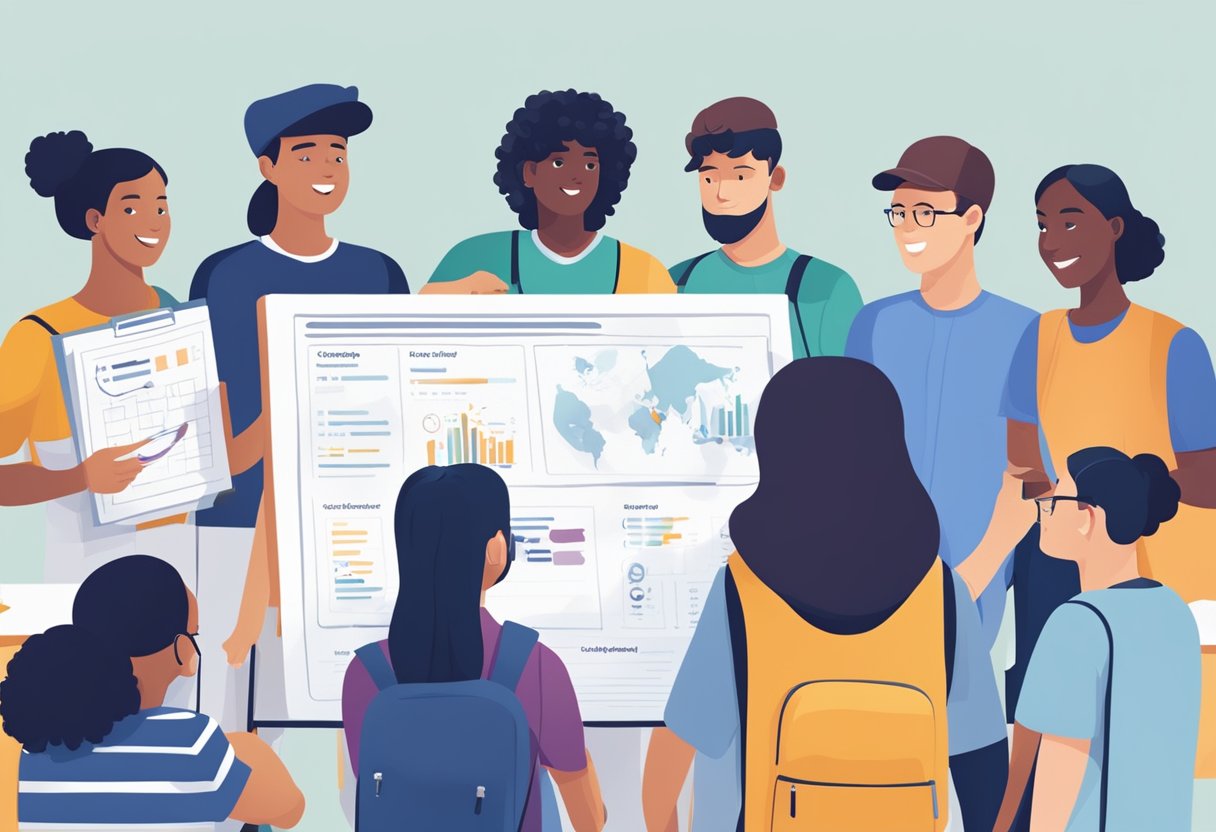Vyuo Vya Ufundi 2024; In Tanzania, students have a wide range of options when it comes to vocational training and technical education. Vyuo vya Ufundi Stadi (VETA) is the main regulatory body responsible for overseeing technical institutes throughout the country. As we look ahead to the year 2024, we can expect to see a number of exciting developments in the world of technical education.

Technical institutes in Tanzania offer a range of courses and programs that are designed to prepare students for careers in a variety of fields. From construction and engineering to healthcare and hospitality, there are many different paths that students can take. In order to gain admission to one of these programs, students must meet certain requirements, including passing the appropriate entrance exams and meeting the necessary academic standards.
Despite the many challenges that technical institutes in Tanzania face, there are many reasons to be optimistic about the future of vocational training in the country. With new innovations in training methods and infrastructure, as well as increased partnerships with industry and regulatory bodies, students can look forward to a bright future in technical education.
Key Takeaways
- Technical institutes in Tanzania offer a wide range of courses and programs designed to prepare students for careers in a variety of fields.
- Admission requirements for technical institutes include passing entrance exams and meeting the necessary academic standards.
- Despite challenges, there are many reasons to be optimistic about the future of vocational training in Tanzania, including new innovations in training methods and infrastructure, and increased partnerships with industry and regulatory bodies.
Overview of Technical Institutes in 2024
In 2024, Tanzania will have several Technical Institutes that offer vocational training in various fields. These institutes are designed to equip students with practical skills that are relevant to the job market. Students who enroll in these institutes can choose from a range of courses, including electrical installation, plumbing, welding and fabrication, design sewing and cloth technology, masonry and bricklaying, auto electric, and information and communication technology.
One of the notable Technical Institutes in Tanzania is VETA. VETA is a government agency that oversees the development of technical education and training in the country. It has several campuses across the country, which offer vocational training to students. The courses offered at VETA are designed to meet the needs of the job market, and they are taught by experienced trainers.
Another Technical Institute is Don Bosco Technical Institute. This institute is located in Dar es Salaam and offers vocational training in various fields, including automotive mechanics, electrical installation, and welding and fabrication. The institute has state-of-the-art equipment and facilities that enable students to acquire practical skills that are relevant to the job market.
St. Gabriel Technical Institute is also a notable Technical Institute in Tanzania. This institute is located in Mwanza and offers vocational training in various fields, including electrical installation, plumbing, and welding and fabrication. The institute has a team of experienced trainers who are committed to ensuring that students acquire practical skills that are relevant to the job market.
Overall, Technical Institutes in Tanzania offer a practical approach to education, which is geared towards equipping students with skills that are relevant to the job market. Students who enroll in these institutes can expect to acquire practical skills that will enable them to secure employment and contribute to the development of the country.
Admission Requirements for Technical Institutes
To be admitted to a technical institute in Tanzania for the 2024 academic year, applicants must meet certain requirements. These requirements are set by the Vocational Education and Training Authority (VETA) and vary depending on the course of study.
Generally, applicants must have completed their primary and secondary education and possess a certificate of completion. They must also have passed their secondary school examinations with a minimum of four passes, including in English and Mathematics. Some courses may require additional subjects or higher grades, so it is important to check the specific requirements for each course.
In addition to academic qualifications, applicants must also meet certain age requirements. For most courses, applicants must be at least 16 years old at the time of application. However, some courses may require applicants to be older.
Applicants must also submit a completed application form, which can be obtained from the relevant technical institute or downloaded from the VETA website. They must also provide copies of their academic certificates and transcripts, as well as a copy of their birth certificate or national ID card.
Overall, the admission process for technical institutes in Tanzania is competitive, and meeting the minimum requirements does not guarantee admission. Applicants are encouraged to apply early and to carefully review the specific admission requirements for their chosen course of study.
Key Programs and Courses Offered

Vyuo vya ufundi stadi (VETA) is a government institution that offers vocational training programs in Tanzania. The institution provides various courses that equip students with practical skills and knowledge to prepare them for the job market. The following are some of the key programs and courses offered by VETA in 2024:
Electrical Installation
The Electrical Installation program is designed to equip students with the necessary skills and knowledge to install, maintain and repair electrical systems. The course covers topics such as electrical safety, wiring systems, electrical machines, and power distribution. Students who complete this program can work as electricians, electrical technicians, or electrical engineers.
Welding and Fabrication
The Welding and Fabrication program is designed to equip students with the necessary skills and knowledge to work in the metal fabrication industry. The course covers topics such as welding processes, metal fabrication techniques, and welding safety. Students who complete this program can work as welders, fabricators, or metalworkers.
Plumbing and Pipe Fitting
The Plumbing and Pipe Fitting program is designed to equip students with the necessary skills and knowledge to install, maintain, and repair plumbing systems. The course covers topics such as plumbing safety, water supply systems, drainage systems, and pipe fitting techniques. Students who complete this program can work as plumbers, pipefitters, or plumbing technicians.
Design Sewing and Cloth Technology
The Design Sewing and Cloth Technology program is designed to equip students with the necessary skills and knowledge to work in the fashion industry. The course covers topics such as fashion design, clothing construction, and textile technology. Students who complete this program can work as fashion designers, tailors, or textile technologists.
Masonry and Bricklaying
The Masonry and Bricklaying program is designed to equip students with the necessary skills and knowledge to work in the construction industry. The course covers topics such as masonry safety, bricklaying techniques, and building construction. Students who complete this program can work as masons, bricklayers, or construction workers.
Auto Electrical
The Auto Electrical program is designed to equip students with the necessary skills and knowledge to work in the automotive industry. The course covers topics such as automotive electrical systems, automotive electronics, and automotive safety. Students who complete this program can work as auto electricians, automotive technicians, or automotive engineers.
Overall, VETA offers a wide range of vocational training programs that cater to the needs of different industries. The institution is committed to providing quality education that prepares students for the job market.
Advancements in Technical Education
Technical education in Tanzania has undergone significant advancements in the recent past. The government has been investing heavily in technical and vocational education and training (TVET) to improve the quality of education and increase access to technical skills. As a result, many institutions, including Vyuo vya Ufundi, have been established across the country to offer technical courses.
One of the most notable advancements in technical education is the adoption of Competence-Based Education and Training (CBET) approach. This approach emphasizes the acquisition of practical skills and knowledge that are relevant to the job market. It also aims to produce graduates who are competent and can meet the needs of employers.
To achieve this objective, Vyuo vya Ufundi has been offering courses that are tailored to meet the needs of the job market. The courses are designed in consultation with employers to ensure that they are relevant and up-to-date. Additionally, the institutions have been investing in modern equipment and facilities to provide students with hands-on experience.
Moreover, Vyuo vya Ufundi has been partnering with industry players to provide students with internship opportunities. This has enabled students to gain practical skills and experience while still in school. The partnerships have also enabled the institutions to align their courses with the needs of the industry.
In conclusion, the advancements in technical education in Tanzania have been significant, and Vyuo vya Ufundi has been at the forefront of these changes. The adoption of the CBET approach, tailoring of courses to meet the needs of the job market, investment in modern equipment and facilities, and partnerships with industry players have all contributed to the improvement of technical education in the country.
Infrastructure and Facilities

Vyuo vya Ufundi Stadi (VETA) in Tanzania is committed to providing quality technical and vocational education and training to its students. To achieve this goal, VETA has invested in modern infrastructure and facilities that are designed to meet the needs of students in different fields.
VETA has a total of 27 campuses spread across Tanzania, with each campus equipped with state-of-the-art facilities. The campuses are designed to provide a conducive learning environment for students to learn and grow. The facilities include modern classrooms, workshops, laboratories, libraries, and computer rooms, among others.
VETA’s campuses are equipped with modern equipment and tools that are essential for practical training. The equipment is regularly maintained to ensure that it is in good working condition at all times. This ensures that students get hands-on training that is relevant to the current job market.
VETA also provides accommodation facilities for its students. The accommodation facilities are equipped with modern amenities such as electricity, water, and security to ensure that students are comfortable and safe while on campus. The accommodation facilities are affordable and are designed to cater to the needs of students from different backgrounds.
In conclusion, VETA has invested heavily in modern infrastructure and facilities to ensure that students get quality technical and vocational education and training. The facilities are designed to provide a conducive learning environment for students to learn and grow. The equipment and tools are regularly maintained to ensure that they are in good working condition at all times. The accommodation facilities are also designed to cater to the needs of students from different backgrounds.
Funding and Tuition Fees

Attending vocational colleges is a great way to gain practical skills and training for a career. However, one of the main concerns for students is the cost of tuition fees. In Tanzania, the Vocational Education and Training Authority (VETA) oversees the funding and management of vocational colleges.
For the 2024 academic year, VETA has not yet released official information regarding tuition fees for vocational colleges. However, it is expected that the fees will be similar to previous years. In general, tuition fees for vocational colleges are lower than those for traditional universities.
There are various funding options available for students who are unable to pay tuition fees. VETA offers scholarships and loans to eligible students. The scholarships are awarded on a merit basis, while the loans are given to students who demonstrate financial need. Additionally, some vocational colleges may offer their own scholarships or financial aid programs.
It’s important to note that the availability of scholarships and loans may vary depending on the vocational college and the student’s qualifications. Students are advised to research and apply for funding options as early as possible to avoid missing out on opportunities.
Overall, while the cost of tuition fees for vocational colleges may be a concern for some students, there are various funding options available to help make education more accessible.
Career Opportunities After Graduation
Graduating from a vocational training center in Tanzania opens up various career opportunities for students. The training received at these centers equips students with practical skills that are highly valued by employers in various sectors of the economy.
Some of the career opportunities available for graduates of vocational training centers include:
- Construction Industry: Graduates who have specialized in masonry, carpentry, welding, plumbing, and electrical installation can find employment in the construction industry. They can work as artisans, supervisors, or even start their own construction companies.
- Manufacturing Industry: Graduates who have specialized in areas such as garment making, textile design, and leatherwork can find employment in the manufacturing industry. They can work in factories that produce clothes, shoes, bags, and other fashion items.
- Automotive Industry: Graduates who have specialized in auto mechanics, auto electrical, and motor vehicle body repair can find employment in the automotive industry. They can work in car repair shops, garages, or even start their own auto repair businesses.
- Hospitality Industry: Graduates who have specialized in hospitality and tourism can find employment in the hospitality industry. They can work in hotels, restaurants, and other tourist facilities.
- Agriculture Industry: Graduates who have specialized in areas such as animal husbandry, crop production, and horticulture can find employment in the agriculture industry. They can work in farms, agro-processing plants, or even start their own farming businesses.
In conclusion, vocational training centers in Tanzania provide students with practical skills that are highly valued by employers in various sectors of the economy. Graduates can find employment in the construction, manufacturing, automotive, hospitality, and agriculture industries, among others.
Partnerships and Industry Linkages

Vyuo vya Ufundi in Tanzania have been working hard to establish partnerships and linkages with various industries in order to provide students with practical training and skills that are relevant to the job market. These partnerships and linkages have been established with both local and international companies, and they have been instrumental in ensuring that the training provided at these institutions is of high quality and relevant to the needs of the industry.
One of the key benefits of these partnerships and linkages is that students are able to gain hands-on experience in their respective fields of study. This is made possible through internships and apprenticeships that are offered by these companies. By working alongside professionals in the industry, students are able to learn the latest techniques and technologies that are being used in the field, and they are able to apply this knowledge in their future careers.
Another benefit of these partnerships and linkages is that they provide students with access to the latest equipment and tools that are being used in the industry. This is important because it ensures that students are able to learn using the latest technology, which is essential in preparing them for the job market. By using the latest equipment and tools, students are able to gain a competitive edge over other graduates who may not have had access to such resources.
In addition to providing students with practical training and access to the latest equipment, these partnerships and linkages also provide opportunities for research and development. This is important because it ensures that the training provided at these institutions is up-to-date and relevant to the needs of the industry. By conducting research and development, these institutions are able to identify new trends and technologies that are emerging in the industry, and they are able to incorporate these into their training programs.
Overall, partnerships and industry linkages are essential in ensuring that students receive high quality and relevant training at Vyuo vya Ufundi in Tanzania. These partnerships and linkages provide students with practical training, access to the latest equipment and tools, and opportunities for research and development. As a result, graduates from these institutions are well-prepared for the job market and are able to make meaningful contributions to their respective fields of study.
Regulatory Bodies and Accreditation

Vyuo vya ufundi in Tanzania are regulated and accredited by the National Council for Technical Education (NACTE) and the Vocational Education and Training Authority (VETA). NACTE is responsible for ensuring that the quality of technical education and training in Tanzania meets international standards. VETA, on the other hand, is responsible for coordinating, regulating, and accrediting vocational education and training in the country.
To ensure that the quality of education and training in vyuo vya ufundi is maintained, NACTE and VETA have established strict guidelines for accreditation. These guidelines cover a wide range of areas, including the quality of facilities, the qualifications of instructors, and the curriculum offered. Institutions that meet these guidelines are accredited and allowed to offer technical and vocational education and training.
In addition to accreditation, NACTE and VETA also work closely with vyuo vya ufundi to ensure that the curriculum offered is up-to-date and relevant to the needs of the job market. This is achieved through regular consultations with industry stakeholders and the development of industry-specific training programs.
Overall, regulatory bodies such as NACTE and VETA play a crucial role in ensuring that vyuo vya ufundi in Tanzania offer high-quality education and training that meets the needs of both students and employers.
Challenges Facing Technical Institutes

Technical and vocational education and training institutions in Tanzania face several challenges that hinder their ability to produce competent graduates. One of the main challenges is the lack of adequate funding to support the infrastructure and equipment necessary for quality technical training. This leads to outdated facilities and equipment, which in turn affects the quality of training and the ability of graduates to meet the demands of the job market.
Another challenge is the shortage of qualified teachers and trainers. This is due to the low salaries offered to technical teachers, which makes it difficult to attract and retain skilled personnel. As a result, most technical institutions rely on part-time lecturers who may not have the necessary expertise to provide quality training.
Furthermore, technical and vocational education and training institutions face the challenge of meeting the demands of the rapidly changing job market. This requires them to constantly update their curricula to ensure that they are relevant to the needs of the market. Failure to do so may result in graduates who are not equipped with the necessary skills to meet the demands of the job market.
In addition, technical institutions also face the challenge of inadequate collaboration with industries and employers. This makes it difficult for them to provide practical training and expose students to real-world work environments. As a result, graduates may lack the necessary practical skills required by employers.
Overall, addressing these challenges will require a concerted effort from the government, technical institutions, and the private sector. It will require increased funding, improved teacher training and retention, regular curriculum updates, and better collaboration with industries and employers.
Innovations in Technical Training Methods
As the job market becomes more competitive, technical training institutions are adapting their methods to better meet the needs of their students. In Tanzania, vyuo vya ufundi are embracing new technologies and techniques to provide students with the skills they need to succeed in today’s job market.
One of the most exciting innovations in technical training is the use of virtual reality (VR) and augmented reality (AR). These technologies allow students to practice hands-on skills in a simulated environment, which can be especially useful for dangerous or expensive tasks. For example, students learning to operate heavy machinery can practice in a virtual environment without the risk of injury or damage to equipment.
Another trend in technical training is the use of gamification. By turning learning into a game, students are more engaged and motivated, which can lead to better retention of information. This can be especially effective for younger students who may struggle with traditional learning methods.
In addition to these new technologies, vyuo vya ufundi are also embracing more traditional methods of hands-on training. Apprenticeships and internships are becoming more common, allowing students to gain real-world experience while still in school. This can be especially valuable for students who may not have access to expensive equipment or tools.
Overall, these innovations in technical training methods are helping to ensure that students are better prepared for the job market. By providing a mix of traditional and modern techniques, vyuo vya ufundi are helping to create a workforce that is both skilled and adaptable.
Frequently Asked Questions

What are the entry requirements for joining technical colleges in Tanzania?
To join technical colleges in Tanzania, applicants need to have completed their Ordinary Level Secondary Education (Form Four) with at least four passes, including Mathematics, English, and Science subjects. Some courses may require specific subject combinations, so it is important to check the entry requirements for the desired course.
How do I apply for admission to VETA Morogoro?
To apply for admission to VETA Morogoro, applicants can visit the official VETA website and follow the application process outlined on the site. Applicants will need to provide their personal details, academic qualifications, and other relevant information.
When will the application for technical colleges be open for 2024?
The application for technical colleges for the year 2024 is expected to open in the first quarter of 2024. It is recommended that applicants regularly check the official VETA website for updates on the application process.
What courses are offered at VETA Dodoma?
VETA Dodoma offers a wide range of technical courses, including Electrical Installation, Welding and Fabrication, Plumbing and Pipe Fitting, Design Sewing and Cloth Technology, Masonry and Bricklaying, and Auto Electric. For a full list of courses offered at VETA Dodoma, applicants can visit the official VETA website.
How can I check my VETA examination results online?
To check VETA examination results online, applicants can visit the official VETA website and navigate to the results section. Applicants will need to provide their registration number or examination number to access their results.
Which institutions offer electrical engineering programs in Tanzania?
Several institutions in Tanzania offer electrical engineering programs, including the Dar es Salaam Institute of Technology, the Arusha Technical College, and the Mbeya University of Science and Technology. Applicants can visit the respective institution’s website for more information on their electrical engineering programs.
Also Read: